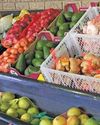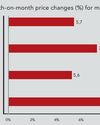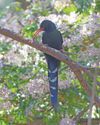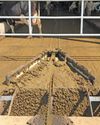
With Freddie Mercury and Montserrat Caballé belting out Barcelona, the rock-operatic hit that was the city’s Olympic song, still able to produce gooseflesh, it isn’t surprising that Spain’s important coastal city remains a must-visit for tourists.
Since the 1992 games, the Olympic village that was built to house the participants has been converted into a residential suburb that provides easy access to the beaches, Barcelona’s main attractions and, mostly, comes at a more affordable price point than staying in the old city, or Gothic Quarter, as it is known.
La Rambla, a pedestrian walkway, cuts through the centre of the city and is the main shopping and dining route.
La Boqueria is the globally famous covered food market that was established in 1836. It leads off La Rambla, which also intersects with the Gothic Quarter and its narrow and winding streets.
HOW TO GET AROUND
The red Hop-on, Hop-off bus is a great way to see the city and to bookmark the areas to return to.
Although Uber is not available in Barcelona, the Uber app can be used to hail a metered taxi. Travellers always have stories about their taxi experiences but Farmer’s Weekly found the Barcelona taxi services easy to use and affordable.
TRADITIONAL DISHES
Spain is where tapas, or small-plate eating, hails from and much like the country’s most famous dish, paella, has regional variations.
Pata Negra, or ‘black foot’, is the best-quality Iberian ham and many La Boqueria vendors offer small browse-and-munch cones of delicious slices along with triangles of Manchego cheese.
This story is from the {{IssueName}} edition of {{MagazineName}}.
Start your 7-day Magzter GOLD free trial to access thousands of curated premium stories, and 9,000+ magazines and newspapers.
Already a subscriber ? Sign In
This story is from the {{IssueName}} edition of {{MagazineName}}.
Start your 7-day Magzter GOLD free trial to access thousands of curated premium stories, and 9,000+ magazines and newspapers.
Already a subscriber? Sign In

Agripreneur wins top award for butternut coffee
Bloemfontein-based agripreneur Chantelle de Bruyn has achieved global recognition.

Final fresh produce inquiry pins low level of transformation on farming environment
The Competition Commission released its final report on the Fresh Produce Market Inquiry in mid-January, maintaining that transformation in the industry was being impeded by a lack of support for emerging farmers.

Illegal fishing in Australia reveals market gap for farmed sea cucumber
Illegal fishing practices in Australia have revealed a large market opportunity for sea cucumber farming.

An introduction to the Ford Ranger Tremor
In December 2024, the CAR magazine team received the Ford Ranger Tremor to accompany them through the festive season and into the new year. Oliver Keohane looks at what the Tremor is all about.

A farmer's experience with bush encroachment
Farmer David Addenbrooke has worked in the Zimbabwean beef industry for around four decades. Here, he relates his experience with bush encroachment and offers farmers some advice on battling this scourge.

Good rains boost SA's summer grain crop prospects
This week, Absa AgriBusiness analyses several market dynamics and shares its expectations for local grain and oilseed prices over the coming months.

A self-help tool for getting young people engaged in agriculture
The active engagement of the youth in agriculture is pivotal to the sustainability and growth of the sector. Empowering them with the necessary support is key to nurturing future farmers who are equipped to overcome future challenges like the effects of climate change.Dr Primrose Madende, researcher at the Department of Agricultural Economics at the University of the Free State

Rallying to the cackle of this raucous bird
The gregarious and territorial Green Wood-hoopoe, also known as the Red-billed Wood-hoopoe, is extremely vocal and is often heard before it is seen. And for very good reason,

SA coffee lovers can expect price increase
South African coffee prices are expected to spike sharply in the foreseeable future because of failed crops in the country’s main importing countries: Brazil and Vietnam.

Paving the way for a greener dairy industry
The dairy industry is often criticised for its environmental impact, but a new innovation called DESTiny aims to empower farmers to take control of their carbon footprints. Riana Reinecke, the tool's developer, explained to Glenneis Kriel how it works and how farmers can benefit from it.